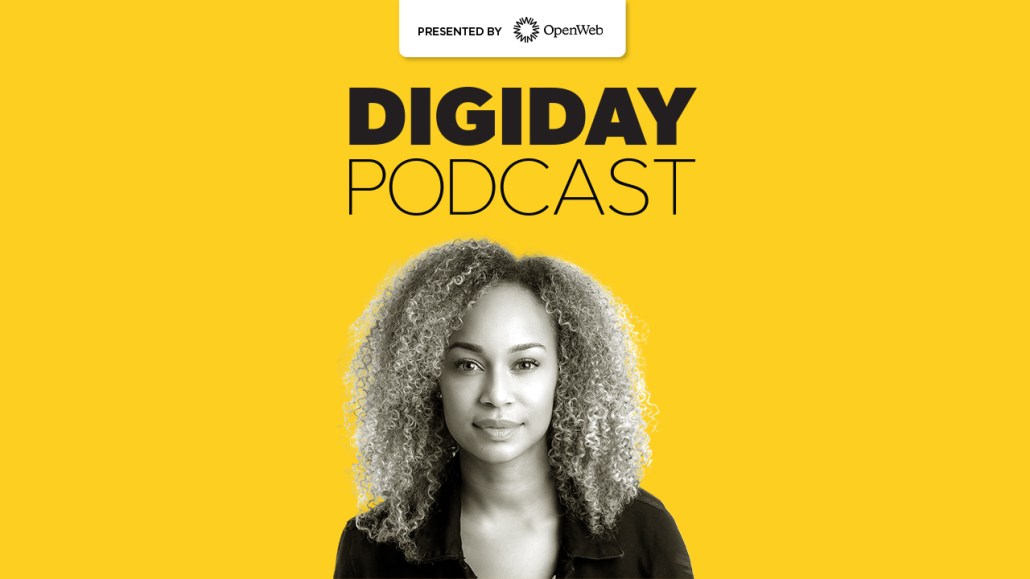Secure your place at the Digiday Media Buying Summit in Nashville, March 2-4
‘I don’t ever get the benefit of the doubt’: Blavity founder Morgan DeBaun on running a Black media business in 2020

Subscribe: Apple Podcasts | Stitcher | Google Play | Spotify
These should be banner days for a Black media site that has long covered social injustice for a young audience.
But Blavity CEO and founder Morgan DeBaun describes challenges that start at the initial difficulty of raising investment as a Black company.
“For me, the systemic racism comes in the fact that I don’t ever get the benefit of the doubt,” DeBaun said at the Digiday Publishing Summit.
As DeBaun sought funds in Silicon Valley, she recalls how investors didn’t believe her site’s strong organic growth, achieved without investing in Facebook ads. “They’re like ‘well, we need access to your Google Analytics,'” DeBaun said.
“It’s all of this diligence that certainly is the process, but the question is, would you run the exact same media company through this process if they weren’t Black?”
Blavity was founded in 2014 and raised a $6.5 million Series A round in 2018.
As for 2020, DeBaun said that advertisers have obviously cut their spending. They’re also wary of having their ads presented alongside coverage of racial injustice or social unrest.
“We have ‘Black’ and ‘African American’ and ‘police’ and ‘brutality’ on all of our news articles. So we can’t run ads on them,” DeBaun said. “I’m taking so many financial hits for doing what’s right and covering what’s right — and what’s true, most importantly.”
Fortunately for DeBaun, Blavity doesn’t depend on display advertising beyond covering its editorial and freelance budget (“our real bread and butter comes with the experiential, 360 deals,” she said).
“I’m grateful that we have a diversified business where we can kind of float it. But it is a weird moment where I want to ramp up and hire more, but it’s not always the best business decision,” DeBaun said.
Here are highlights from the conversation, which have been lightly edited for clarity.
When everything falls afoul of brand safety
“Advertisers were starting to come back because Covid was slowing down, but then this [George Floyd’s death] hit, so advertisers paused their campaigns out of respect. But as a Black media publication — and I read about this a bunch on Digiday, so I’m glad the topic is being addressed now— when you think about keyword blocking, we have ‘Black’ and ‘African American’ and ‘police’ and ‘brutality’ on all of our news articles. So we can’t run ads on them. I’m taking so many financial hits for doing what’s right and covering what’s right —and what’s true, most importantly. It’s this constant conflict. I’m grateful that we have a diversified business where we can kind of float it. But it is a weird moment where I want to ramp up and hire more, but it’s not always the best business decision.”
‘After the gestures, corporations must follow through’
“The day that they [Procter & Gamble] [make this statement] is the same day that three of our RFPs [request for proposal] from them get declined. So I just don’t believe the words until I see the results. Everyone’s making all these statements and commitments, and I also challenge when people say ‘we’re going to spend $100 million on the Black community.’ The question is, how much were you already spending? Because you might have already been spending $100 million when you add up all these little things you do. Is $100 million — when you spend $1 billion on advertising — enough? Or a billion plus, if we’re talking about a Procter & Gamble?”
Advertising’s days may be numbered
“What is the essence of the business of media in 2030? Is it still advertising? If so, we need to figure that out because we’re not going to be able to pay people living wages and really build out non-toxic workplaces and kick out all these old white men that don’t need to work here anymore. We need to have a whole industry conversation about the future of media.”
Join us on Friday, July 17 at 12 p.m. ET on The New Normal, a weekly interactive show focused on how publishers are adapting their businesses. Kerel Cooper and Erik Requidan, hosts of the Minority Report podcast, will talk — and share excerpts — with Digiday about what they’ve learned about diversity in the worlds of ad tech, business and media. Register here.
More in Media

Media Briefing: Turning scraped content into paid assets — Amazon and Microsoft build AI marketplaces
Amazon plans an AI content marketplace to join Microsoft’s efforts and pay publishers — but it relies on AI com stop scraping for free.

Overheard at the Digiday AI Marketing Strategies event
Marketers, brands, and tech companies chat in-person at Digiday’s AI Marketing Strategies event about internal friction, how best to use AI tools, and more.

Digiday+ Research: Dow Jones, Business Insider and other publishers on AI-driven search
This report explores how publishers are navigating search as AI reshapes how people access information and how publishers monetize content.





